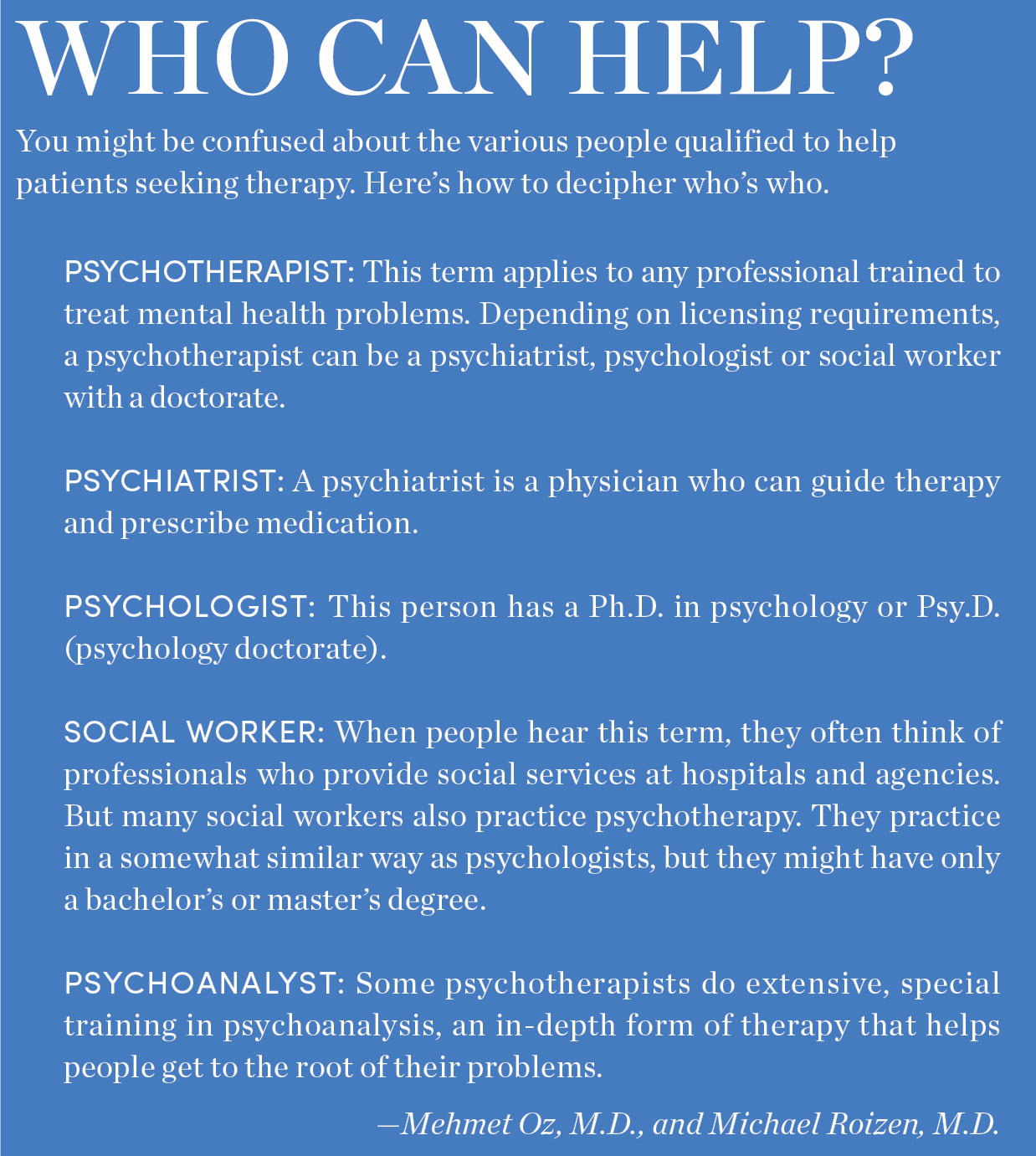Minor versions of personality quirks (say someone who is very sensitive or organized) are part of what makes us unique. But extreme versions of these variations in personality and functioning can be mental disorders. Hypersensitivity can become depression, for example, and extreme organization can become obsessive-compulsive disorder.
Luckily, therapy can improve mental illnesses. But there are three obstacles you will need to overcome first.
Obstacle 1: Recognizing the Problem
We all throw around the word depression with nonchalance: You’re depressed because the Buckeyes lost. You’re depressed because Girls ended.
But when you say these things, you’re actually referring to daily ups and downs, not long-term alterations in mood. Clinical depression is not momentary sadness but a persistent feeling of despair triggered by an imbalance of chemicals in your brain.
The myth about depression, anxiety and other mental disorders is that they’re “soft” diseases. All you have to do is suck it up and be happy. We have to start thinking about mental illnesses the way we would any tangible health problem, such as heart disease. Catch it early, and you’ve got a good shot at curing it.
We can’t will ourselves out of depression or away from a powerful addiction. But we can understand how these emotional disorders work and learn methods for coping with them.
Related: 5 Simple Habits to Manage Your Anxiety
Obstacle 2: Overcoming Social Stigma
Social stigma discourages the pursuit of mental health treatment. Stereotypes are the root cause of such stigma: They depict those with mental illness as dangerous, unpredictable, malingering or incompetent. These stereotypes and stigma then lead to job and social discrimination.
These displays of discrimination frequently prompt the development of self-stigma: People with mental illness begin to think they fit these descriptions, or worse, that they are unable to recover. These thoughts lead to shame, low self-esteem and the inability to accomplish goals. Many try to avoid being labeled as mentally ill by denying or hiding their problems and refusing to seek care. Social networks, including family members, friends and co-workers, can also have a big impact on people’s decisions to pursue treatment, serving either to enhance feelings of stigma or to encourage seeking care.
Obstacle 3: Finding the Help Needed
Although drug therapy is often started by a primary-care physician, we believe a specialist is needed for mental health conditions.
Such specialists usually combine medication, talk therapy and other behavioral therapies such as exercise and meditation. But almost all treatment involves talking. In treating minor depression and other mental illnesses, talk therapy over six weeks is 60 to 70 percent successful, and 90 percent successful when used in conjunction with drugs. It works by inducing the release of the feel-good hormone oxytocin and by learning new coping strategies.
When it comes to reducing the effects of depression, anxiety and other mental illnesses, the biggest cure might not be in a pill bottle, but in making sure you don’t stay bottled up yourself.

Related: 11 Strategies for Managing Stress
This article originally appeared in the July 2017 issue of SUCCESS magazine.


